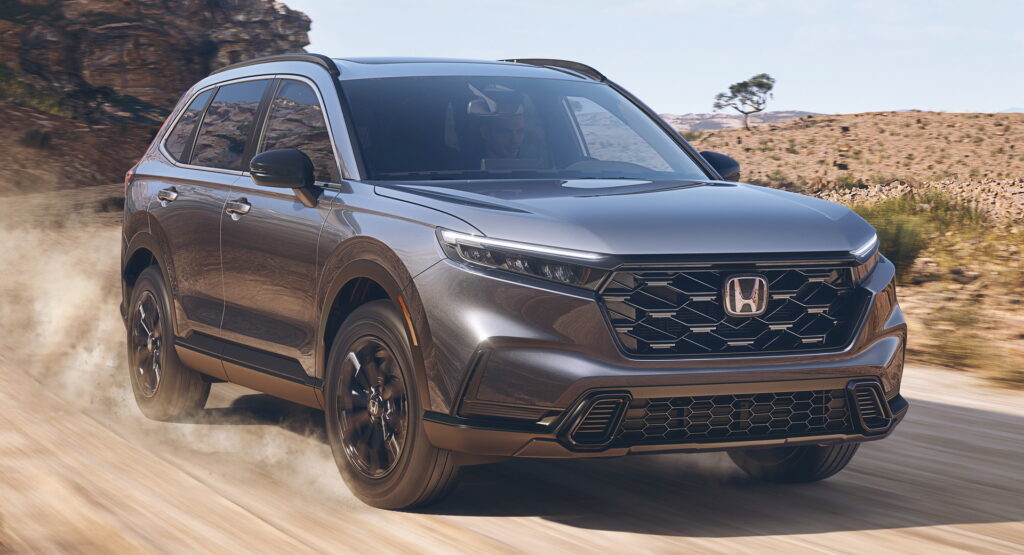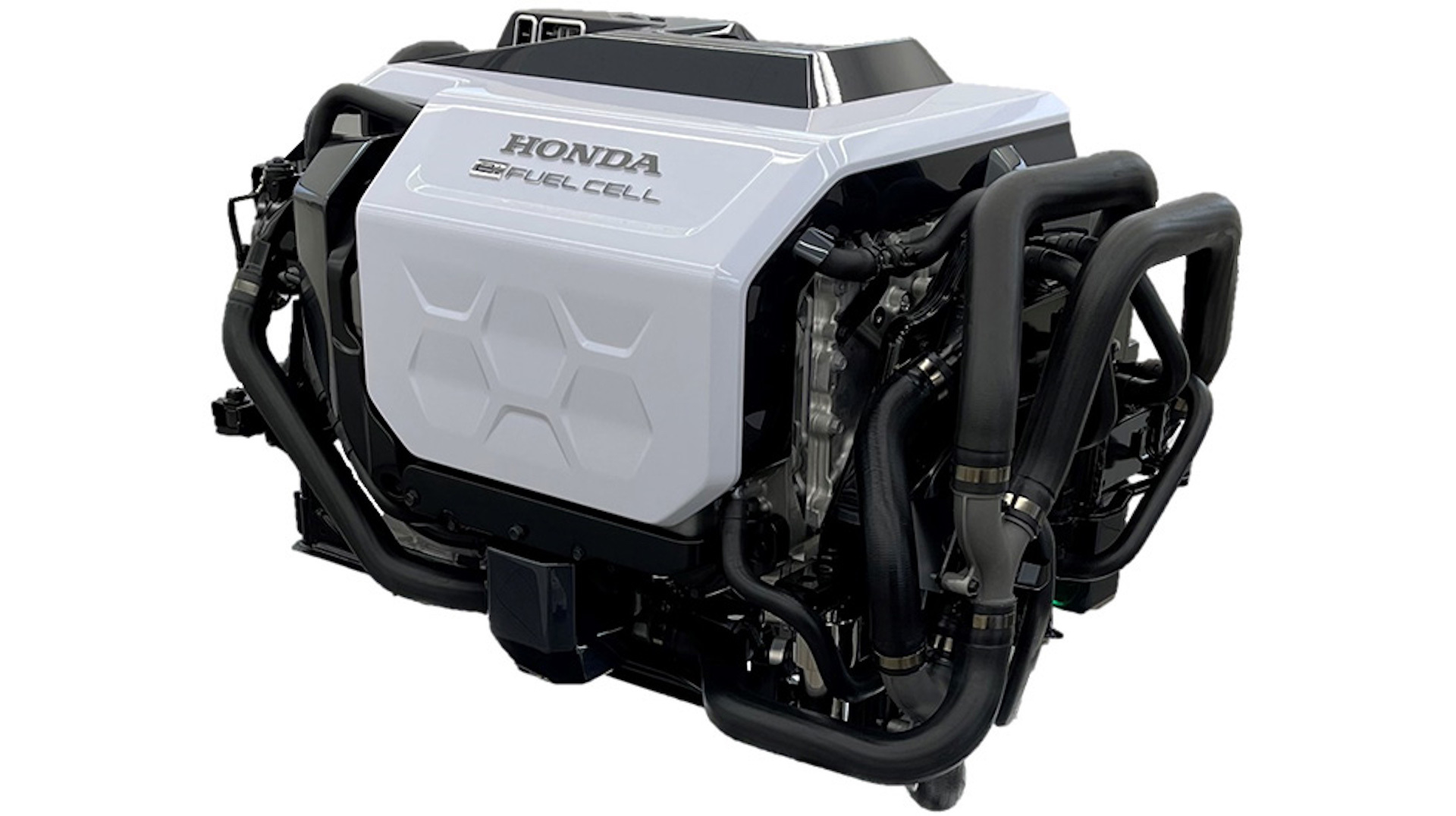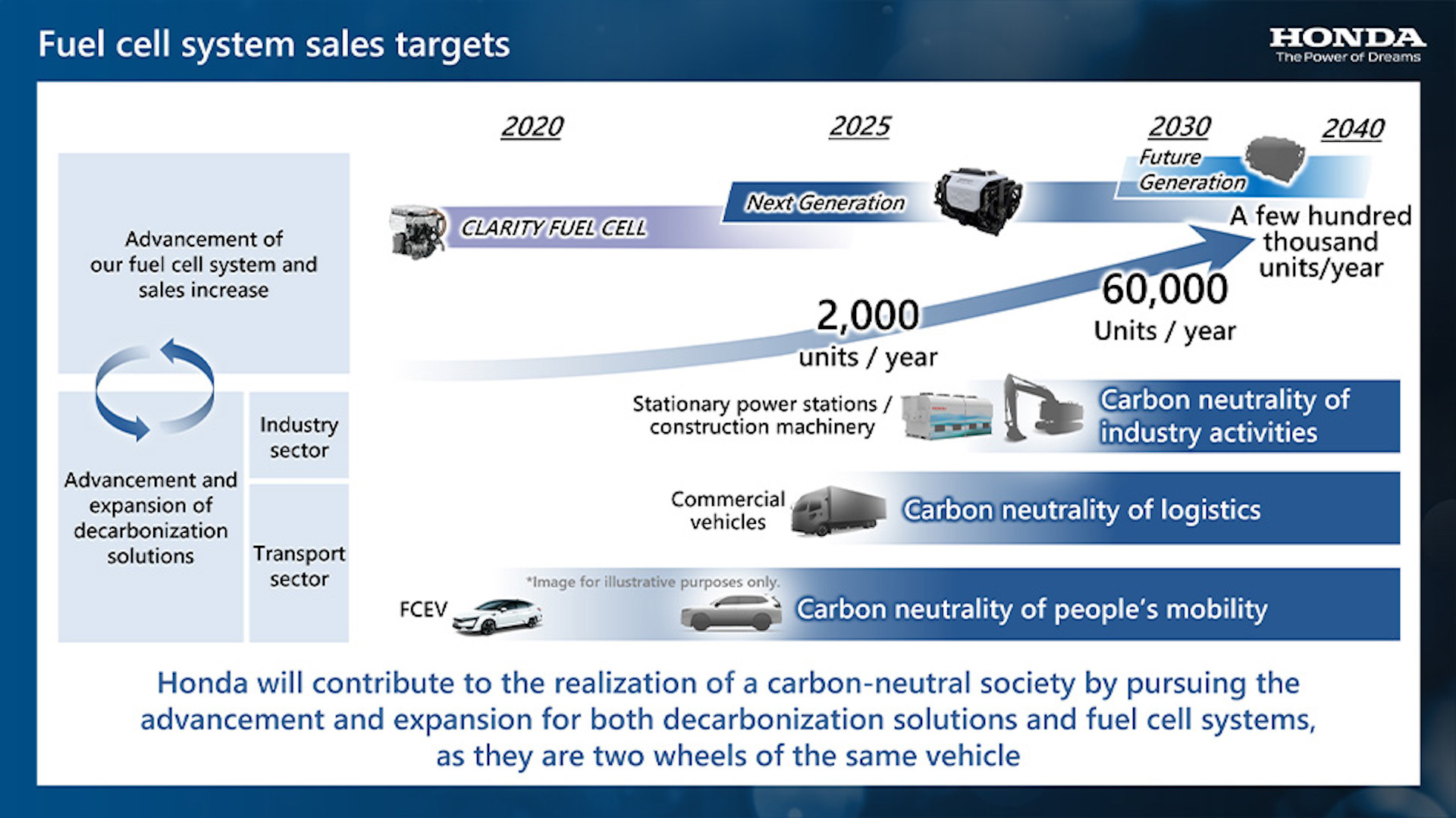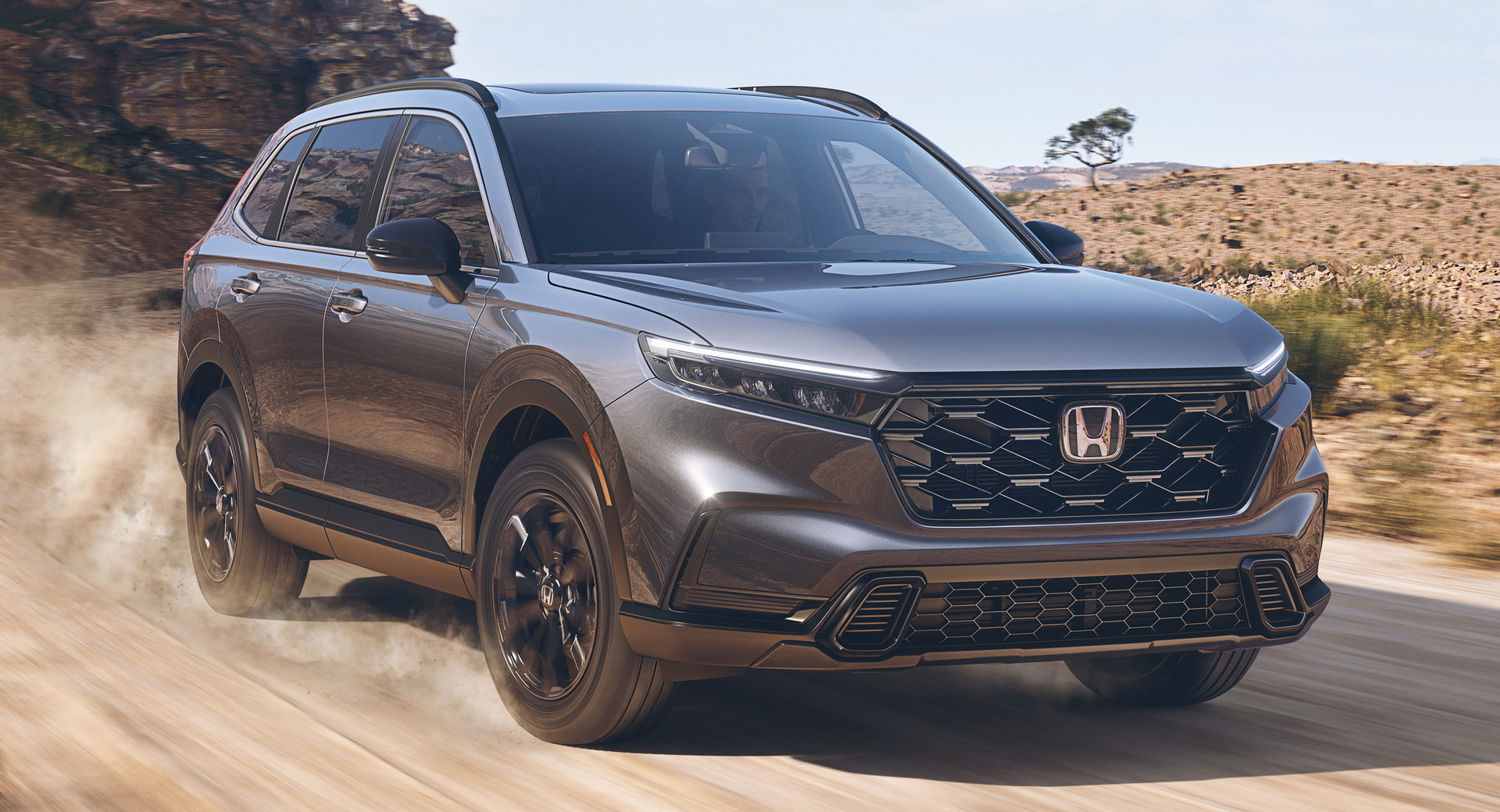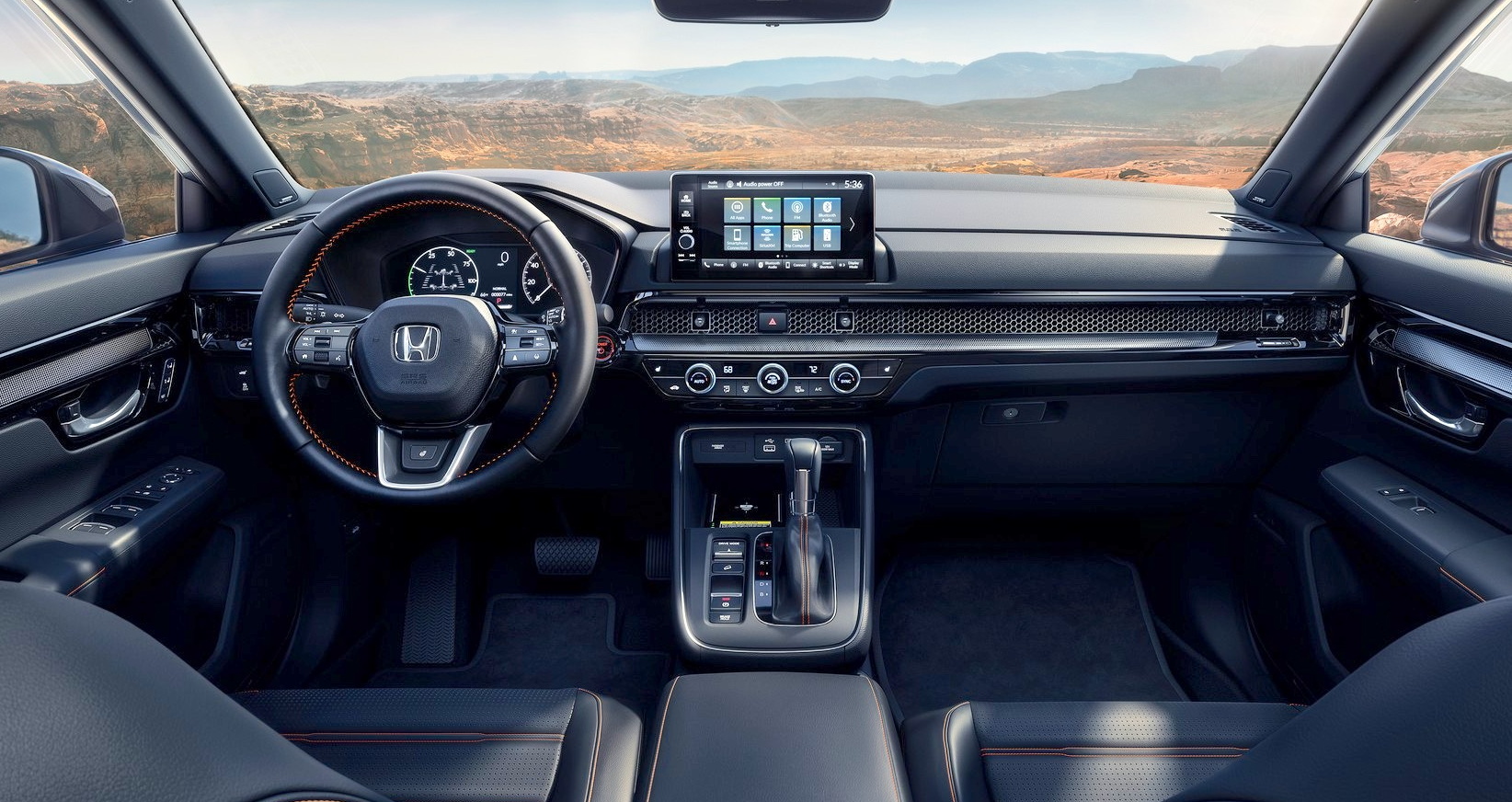The hydrogen fuel cell system Honda is developing with GM will costs one third as much as the equivalent powertrain in the older Clarity, Honda says.
The new hydrogen system will be installed in the Ohio-built CR-V and goes on sale in Japan and North America in 2024. Unusually for a fuel cell vehicle, the hydrogen Honda SUV will also feature plug-in functionality for extra convenience. That sounds like a smart move given how patchy the hydrogen refuelling infrastructure is, and will still be a year from now.
Technical details about the hydrogen CR-V are almost as non-existent as they were last year when we first heard about the program, and we still don’t know how different it will look from the standard ICE model pictured above. But Honda says the massively lower costs have been achieved though the use of new materials for the electrodes and an improved cell sealing structure as well as better productivity. It also says the unit will be twice as durable as the Clarity’s powertrain thanks to the application of corrosion-resistant materials and superior low temperature resistance.
Honda’s hydrogen activities won’t just be limited to selling hydrogen passenger vehicles, however. It thinks hydrogen power units could be used in everything from cars and motorcycles to commercial trucks and construction equipment, and sees stationary power stations as another key business. Honda even mentions space exploration as a growth area for hybrid tech, claiming that the technology could allow energy and breathable air to be produced in space, rather than transported from Earth.
Related: Honda To Build New CR-V-Based Hydrogen Vehicle In America In 2024
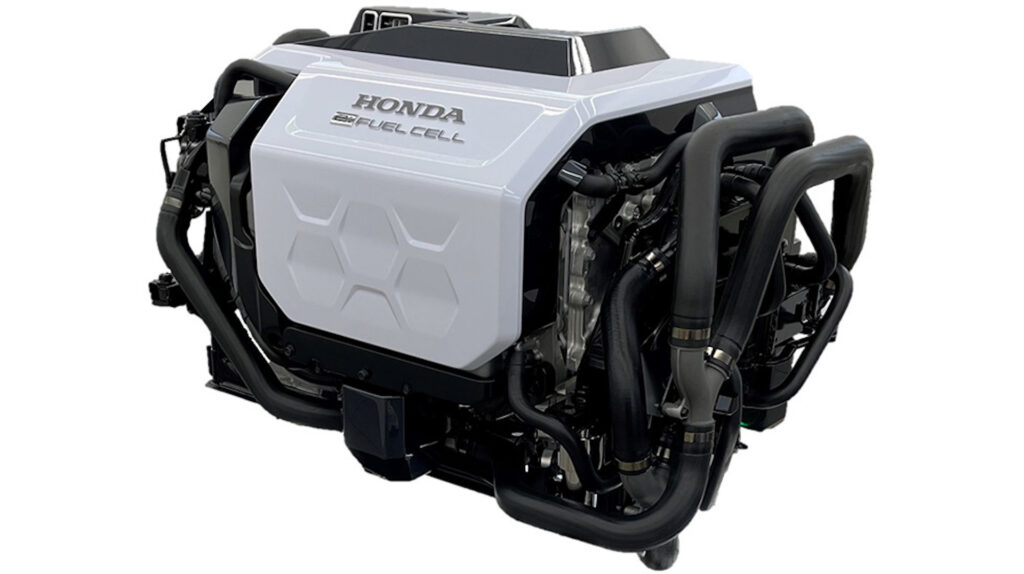
Some of those activities are still a way off. Honda plans to start small with initial sales of fuel-cell units in the region of 2,000 annually by the middle of this decade, but increasing to 60,000 by 2030 and eventually reaching the hundreds of thousands by the second half of the 2030s.
Honda introduced its FCX Clarity fuel-cell sedan in 2008 and has been working on this new hydrogen tech with GM since 2013. But the pair are far from the only automakers interested in hydrogen as an alternative to pure electric power. Toyota, BMW, Hyundai and others are all convinced hydrogen will play a key role in powering future cars and trucks.




